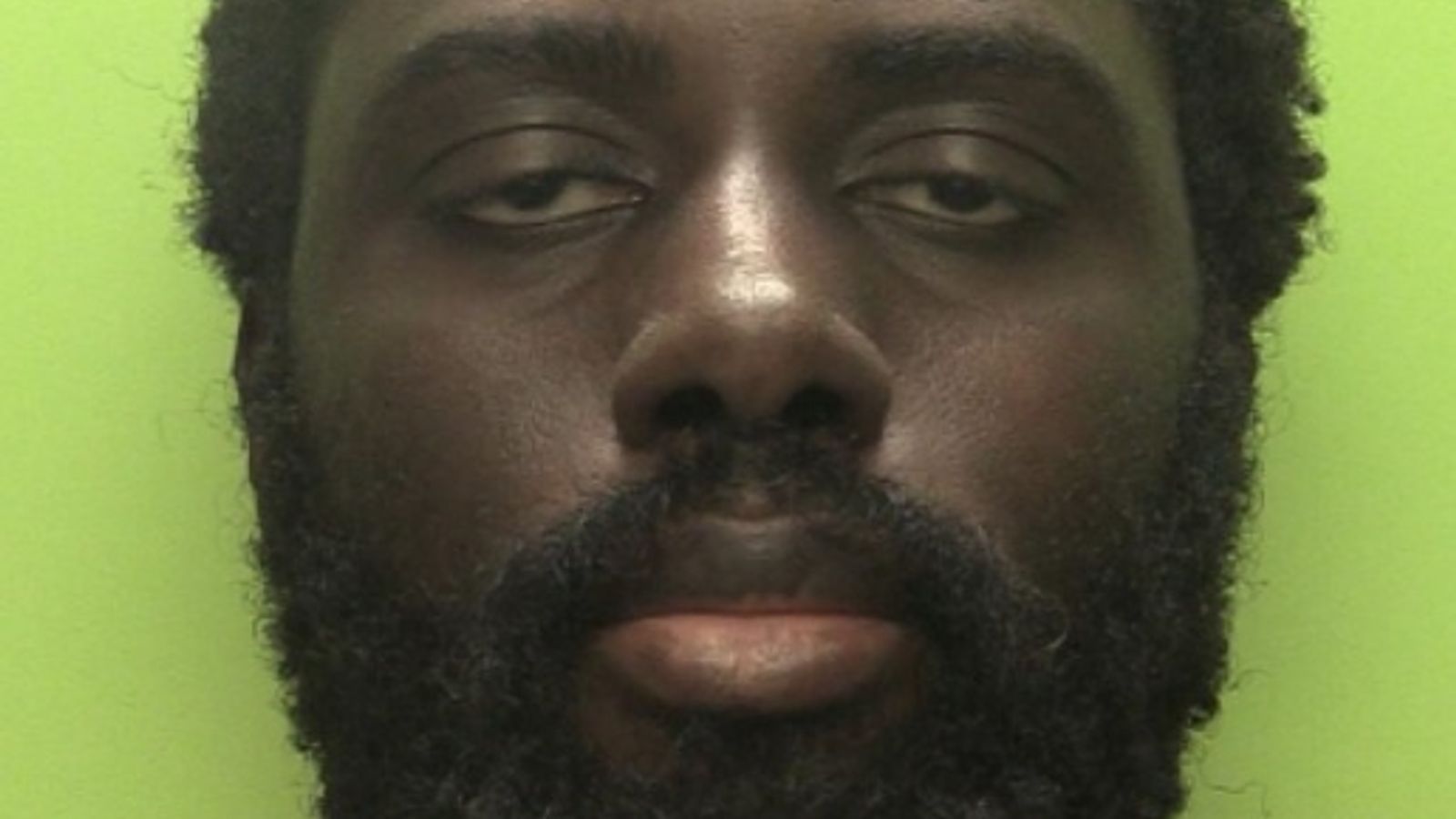Triple killer Valdo Calocane’s sentence could be referred to the Court of Appeal after the attorney general received a complaint arguing it’s too lenient.
Calocane stabbed to death Barnaby Webber, Grace O’Malley-Kumar and Ian Coates in Nottingham in June, and tried to kill three others with a van.
He was sentenced to detention in a high-security hospital after prosecutors accepted his manslaughter plea rather than pursuing a murder conviction.
The deal was done as experts agreed he had paranoid schizophrenia so wasn’t fully responsible for his actions.
The victims’ families have criticised the sentence – as well as authorities they say could have prevented the tragedy.
Speaking at court on Thursday, Mr Webber’s mother Emma said “true justice has not been served” and accused a police chief of having “blood on your hands”.
“This man [Calocane] made a mockery of the system and he has got away with murder,” added Mr Coates’ son James.
Son of man stabbed to death says authorities ‘aren’t learning’ to avoid mental health homicides
Nottingham attacks: Why so many missed chances to stop Valdo Calocane?
Families of Nottingham attack victims ‘let down’ after killer sentenced – ‘you have blood on your hands’
A spokesman for Attorney General Victoria Prentis, the government’s chief lawyer, confirmed a referral had been received shortly on Thursday.
Please use Chrome browser for a more accessible video player
She now has 28 days to decide whether to refer the case to the Court of Appeal for judges to decide if the sentence is appropriate.
However, it’s understood the attorney general is unlikely to look at whether the correct charge was pursued.
It’s not known who made the referral, but any person or institution can ask for a review.
The sentencing judge, Mr Justice Turner, said 32-year-old Colocane would “very probably” be detained in a high-security hospital for the rest of his life.
Families were united outside court as they accused the Crown Prosecution Service, police and the NHS of multiple failures.
They said prosecutors had already made up their minds when they informed them they would accept Calocane’s manslaughter plea.
“At no point during the previous five-and-a-half-months were we given any indication that this could conclude in anything other than murder,” said Mrs Webber.
‘He knew it was wrong’
She said although Calocane was mentally unwell, the attacks were premeditated and “he knew entirely that it was wrong but he did it anyway”.
Nottingham Crown Court heard he had previously been detained in hospital four times under mental health laws and had a history of refusing his medication.
Calocane was also arrested for assaulting a police officer in September 2021, involved in criminal damage and once visited MI5 headquarters to ask them to stop “controlling him”.
Please use Chrome browser for a more accessible video player
Rob Griffin, Nottinghamshire Police’s assistant chief constable, admitted “we should have done more to arrest him” after he failed to appear in court for assaulting the officer.
However, he said it was unlikely Calocane would have been jailed and there wasn’t anything “obvious” to suggest he would commit the savage attacks.
Calocane’s arrest warrant was still outstanding at the time of the killings.
Students Barnaby Webber and Grace O’Malley-Kumar, both 19, died after being stabbed repeatedly as they walked home in the early hours of 13 June.
Grace tried to save her friend but was also attacked.
Please use Chrome browser for a more accessible video player
Calocane walked away calmly and later stabbed school caretaker Ian Coates 15 times, stealing the 65-year-old’s van and using it to knock over three people.
Calocane admitted attempted murder over the van attack.
Police tasered him soon after and found two knives and a scaffolding pole in his backpack.
Be the first to get Breaking News
Install the Sky News app for free
The court heard Calocane would hear voices telling him to kill people or his family would be hurt. However, he wasn’t taking his prescribed medication.
Prime Minister Rishi Sunak has declined to back calls for a public inquiry into alleged failings.
However, he said it was “important that all the relevant agencies look back to ensure all reasonable steps that could have been taken were taken and if there are any lessons to be learned that we do so”.





